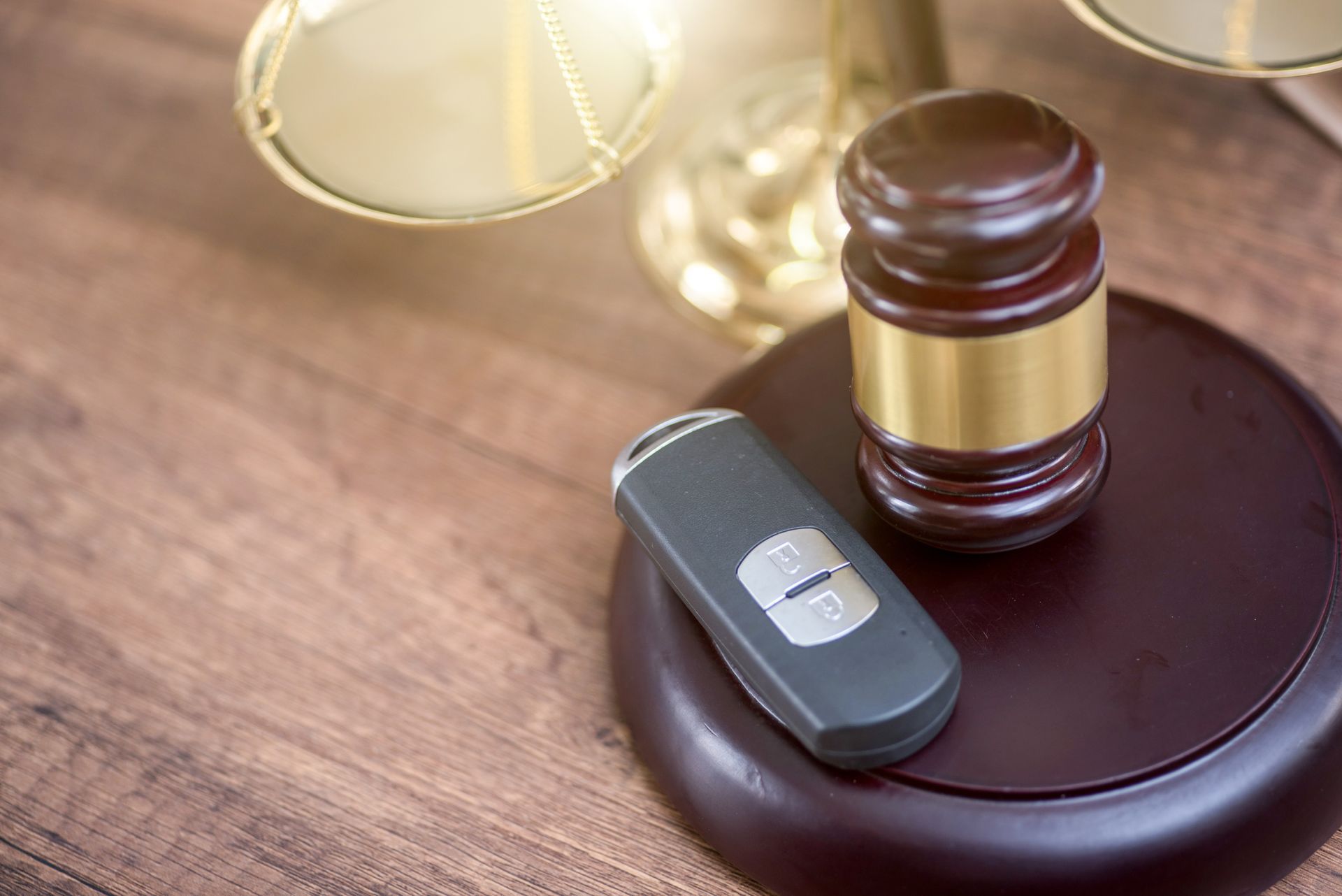LEGAL ROUNDUP
The Legal Year That Was
It’s that time of year again. No, not the time of year where we say goodbye to the year that has passed with all of its big events, good and bad, and we welcome the beginning of a New Year with all of its possibilities…well, ok, it IS that time of year again. But for our purposes, “this time of year” refers to a roundup of all the important—maybe even landmark—cases of 2023. Below is a summary of some of the cases that made headlines and headaches:
SFFA v. Harvard College, et al.: The Supreme Court rejected affirmative action at colleges and universities around the nation, declaring that the race-conscious admissions programs at Harvard and the University of North Carolina were unlawful. The court rolled back a policy that had long been a pillar of higher education. The vote was 6 to 3, with the court’s liberal members in dissent.
“The Harvard and U.N.C. admissions programs cannot be reconciled with the guarantees of the equal protection clause,” Chief Justice John G. Roberts Jr. wrote for the majority. “Both programs lack sufficiently focused and measurable objectives warranting the use of race, unavoidably employ race in a negative manner, involve racial stereotyping and lack meaningful end points.” Justice Sonia Sotomayor summarized her dissent from the bench, a rare move that signals profound disagreement, and said that affirmative action was crucial to countering persistent and systematic racial discrimination.
“The court subverts the constitutional guarantee of equal protection by further entrenching racial inequality in education, the very foundation of our democratic government and pluralistic society,” she said in her written dissent.
Biden v. Nebraska (Student Loan Forgiveness): The Supreme Court ruled that the Biden administration had overstepped its authority with its plan to wipe out more than $400 billion in student debt, dashing the hopes of tens of millions of borrowers and imposing new restrictions on presidential power. Chief Justice John G. Roberts Jr., writing for the majority, said a 2003 law, which allows the secretary of education to “waive or modify” relevant statutes and regulations in emergencies, had not authorized the administration to cancel the debt:
“The secretary’s plan has ‘modified’ the cited provisions,” the chief justice wrote, quoting an earlier opinion, “only in the same sense that ‘the French Revolution “modified” the status of the French nobility’ — it has abolished them and supplanted them with a new regime entirely.”
Justice Elena Kagan summarized her dissent from the bench, a rare move and a sign of deep disagreement. In siding with six Republican-led states that sued to block the program, she said, the majority opinion was opportunistic, unprincipled and infected by politics.
303 Creative LLC v. Elenis: The Supreme Court sided with a web designer in Colorado who said she had a First Amendment right to refuse to design wedding websites for same-sex couples despite a state law that forbids discrimination against gay people. Justice Neil M. Gorsuch, writing for the majority in a 6-3 vote, said that the First Amendment protected the designer, Lorie Smith, from being compelled to express views she opposed. The justices split along ideological lines, and the two sides appeared to talk past each other. The majority saw the decision as a victory that safeguarded the First Amendment right of artists to express themselves. The liberal justices viewed it as something else entirely — a dispute that threatened societal protections for gay rights and rolled back some recent progress.
In an impassioned dissent, Justice Sonia Sotomayor warned that the outcome signaled a return to a time when people of color and other minority groups faced open discrimination. It was the second time this week that the justice summarized her dissent from the bench, a rare move that signals deep disagreement. Appearing dismayed, Justice Sotomayor spoke for more than 20 minutes.
A Colorado law forbids discrimination against gay people by businesses open to the public as well as statements announcing such discrimination. Ms. Smith, who has said that her Christian faith requires her to turn away same-sex couples seeking website design services, has not yet begun her wedding business, nor has she posted a proposed statement on her current website about her policy and beliefs for fear, she has said, of running afoul of the law.
Justice Gorsuch wrote the opinion for the majority, which concluded that states could not use public accommodation laws to deny speakers the right to choose the content of their messages. Otherwise, he wrote, “the better the artist, the finer the writer, the more unique his talent, the more easily his voice could be conscripted to disseminate the government’s preferred messages. That would not respect the First Amendment; more nearly, it would spell its demise.”
In her dissent, Justice Sotomayor described public accommodation laws as designed to ensure “equal dignity in the common market.” She cited a landmark 1964 Supreme Court case, Heart of Atlanta Motel Inc. v. United States, where the court found that hotels did not have the right to discriminate against Black guests.
Groff v. DeJoy: The case was brought by Gerald Groff, an evangelical Christian and former missionary who worked as a substitute mail carrier. After the U.S. Postal Service struck a deal with Amazon in 2013 to deliver packages on Sundays, Mr. Groff said he had to choose between his faith and his livelihood, opting to quit after being disciplined for missing work. Solicitor General Elizabeth B. Prelogar, representing the Postal Service, said Mr. Groff’s refusal to work on Sundays imposed a significant burden on a small post office, was in tension with an agreement with a labor union and was bad for other workers’ morale.
In the last few years, the Supreme Court has ruled that a high school football coach had a constitutional right to pray at the 50-yard line after his team’s games, that state programs financially supporting private schools in Maine and Montana must include religious ones, that a Catholic social services agency in Philadelphia could defy city rules and refuse to work with same-sex couples who apply to take in foster children and that the Trump administration could allow employers with religious objections to deny contraception coverage to female workers.
In this case, the Court decided what is an “undue hardship” for an employer under the Civil Rights Act of 1964’s Title VII. In a unanimous opinion, Justice Samuel Alito wrote that "Title VII requires an employer that denies a religious accommodation to show that the burden of granting an accommodation would result in substantial increased costs in relation to the conduct of its particular business." The Court left the context-specific application of that clarified standard in this case to the lower courts to decide.
Gonzalez v. Google LLC and Twitter, Inc. v. Taamneh
In Gonzalez v. Google, the Court considered if the Communications Decency Act’s Section 230 allows lawsuits against internet services when algorithmic programs recommend a third party’s content to likely users, or if they can be sued only when engaging in traditional, manual editorial functions.
In Twitter v. Taamneh, the Court took on a similar question about the liability of widely available internet services such as Google’s YouTube service, Facebook, and Twitter under Section 2333 of the Anti-Terrorism Act, and if these services can be sued based on the level of activity undertaken by them to detect their use by foreign terrorists such as ISIS.
Writing for a unanimous court ruled in Twitter v. Taamneh, Justice Clarence Thomas said that “the plaintiffs’ allegations are insufficient to establish that these defendants aided and abetted ISIS in carrying out the relevant attack.” After the Twitter decision, the court remanded the Gonzalez v. Google case back to the Ninth Circuit for reconsideration.
The ramifications of the above decisions are playing out in lower courts and society at large. Stay tuned as the Supreme Court continues its 2023-2024 term.
If you or someone you know has been involved in an accident, contact Dave Thomas at The Thomas Law Firm, and get an experienced personal injury attorney to provide a free evaluation of your legal claims.








